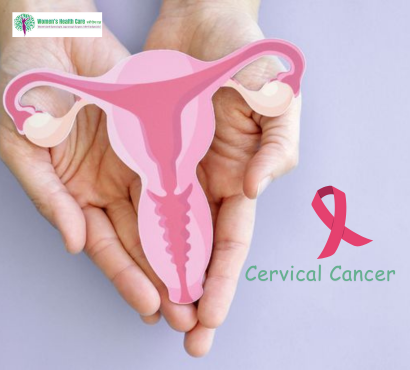Cervical cancer is one of the most common cancers affecting women worldwide, but it is also one of the most preventable. In India, cervical cancer accounts for a significant number of cancer cases among women, particularly in the 30–50 age group. The good news? Early detection and preventive measures — including the HPV vaccine — can dramatically reduce the risk.
the early signs, the importance of screening, and how vaccination can help in prevention.
What Is Cervical Cancer?
Cervical cancer occurs in the cells of the cervix — the lower part of the uterus that connects to the vagina. Most cases are linked to persistent infection with high-risk types of the Human Papillomavirus (HPV), a common sexually transmitted infection.
While HPV infection is common, it doesn’t always lead to cancer. In many women, the body’s immune system clears the virus naturally. However, in some cases, the infection persists, causing abnormal cell changes that can develop into cancer over time.
Early Signs and Symptoms of Cervical Cancer
Cervical cancer often develops slowly, and early stages usually do not present obvious symptoms. This is why screening is critical. However, in more advanced stages, you may notice:
- Abnormal vaginal bleeding — after intercourse, between periods, or after menopause
- Unusual vaginal discharge — watery, bloody, or with a foul odor
- Pelvic pain or pain during intercourse
- Longer or heavier menstrual periods
Important: These symptoms can also be caused by other conditions, but it’s best to consult a gynecologist promptly.
Risk Factors for Cervical Cancer
While HPV infection is the primary cause, other factors can increase your risk:
- Early sexual activity or multiple sexual partners
- Weak immune system (HIV, long-term immunosuppressive therapy)
- Smoking
- Long-term use of oral contraceptives (over 5 years)
- Multiple full-term pregnancies
- Lack of regular screening
The Role of Screening in Early Detection
Screening can detect precancerous changes before they turn into cancer. In India, Pap smears and HPV DNA tests are the two primary screening methods.
1. Pap Smear Test
- Detects abnormal cell changes in the cervix
- Recommended every 3 years for women aged 21–65
- Can be combined with an HPV test for more accuracy
2. HPV DNA Test
- Detects high-risk HPV strains that can cause cervical cancer
- Recommended every 5 years for women aged 30 and above, along with a Pap test
Tip: Even if you’ve received the HPV vaccine, regular screening is still necessary.
HPV Vaccine: Your Best Preventive Weapon
The HPV vaccine protects against the most common cancer-causing HPV types (16 and 18), which are responsible for around 70% of cervical cancer cases. Some vaccines also protect against HPV types causing genital warts.
Who Should Get the HPV Vaccine?
- Girls and women aged 9–26 years benefit most when vaccinated before sexual activity begins
- Can also be given to women up to age 45 after discussing with a doctor
- Boys can also be vaccinated to reduce HPV transmission
Types of HPV Vaccines Available in India
- Cervarix – protects against HPV types 16 and 18
- Gardasil – protects against HPV types 6, 11, 16, and 18
- Gardasil 9 – protects against nine HPV types (not yet widely available in India)
Dosage:
- For ages 9–14: Two doses, 6–12 months apart
- For ages 15+: Three doses over 6 months
Prevention Tips Beyond Vaccination
- Practice safe sex (use condoms)
- Avoid smoking
- Maintain a healthy immune system through proper diet, exercise, and sleep
- Get regular gynecological check-ups and screenings
- Educate women and young girls about HPV and cervical cancer risks
Why Awareness Matters in India
In India, many women are diagnosed at advanced stages due to lack of awareness and limited access to screening. Social stigma and myths about gynecological exams also delay diagnosis. Public health campaigns and open conversations are vital to encourage timely screening and vaccination.
Cervical cancer is highly preventable through early detection, vaccination, and lifestyle choices. By combining HPV vaccination with regular screening, women can significantly lower their risk. Knowledge, awareness, and timely action can save thousands of lives every year.
FAQs
- Can cervical cancer be completely cured if detected early?
Yes. When detected in its early stages, cervical cancer has a high cure rate with appropriate treatment. - Do I still need a Pap smear if I have received the HPV vaccine?
Yes. The vaccine does not protect against all HPV types, so regular screening is still essential. - Is the HPV vaccine safe?
Yes. It is approved by health authorities worldwide and has been proven safe and effective with minimal side effects like mild fever or injection site pain.

